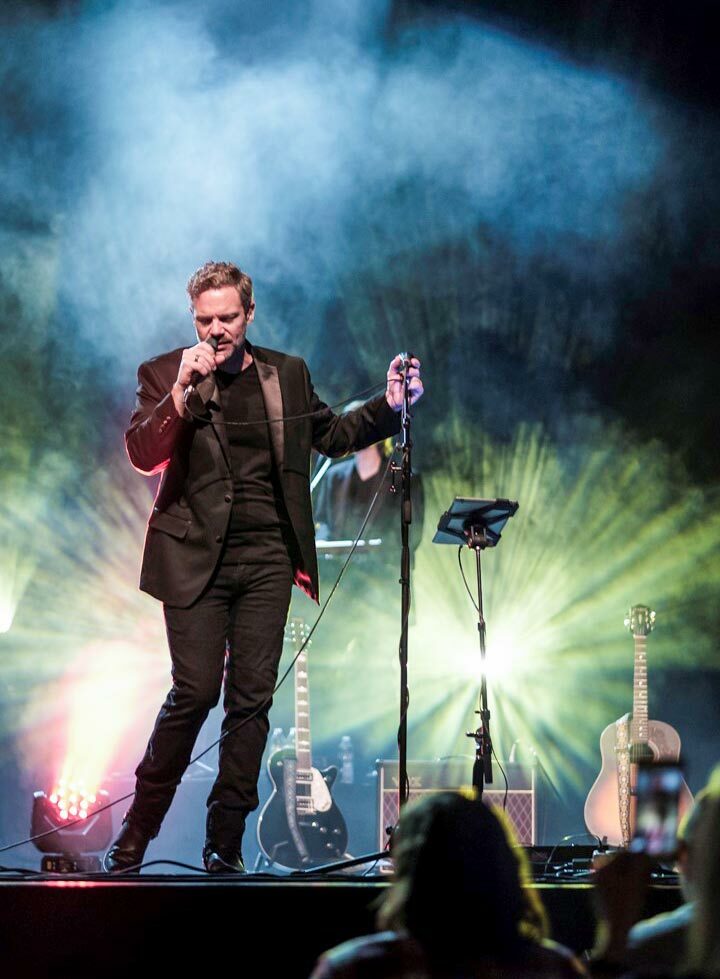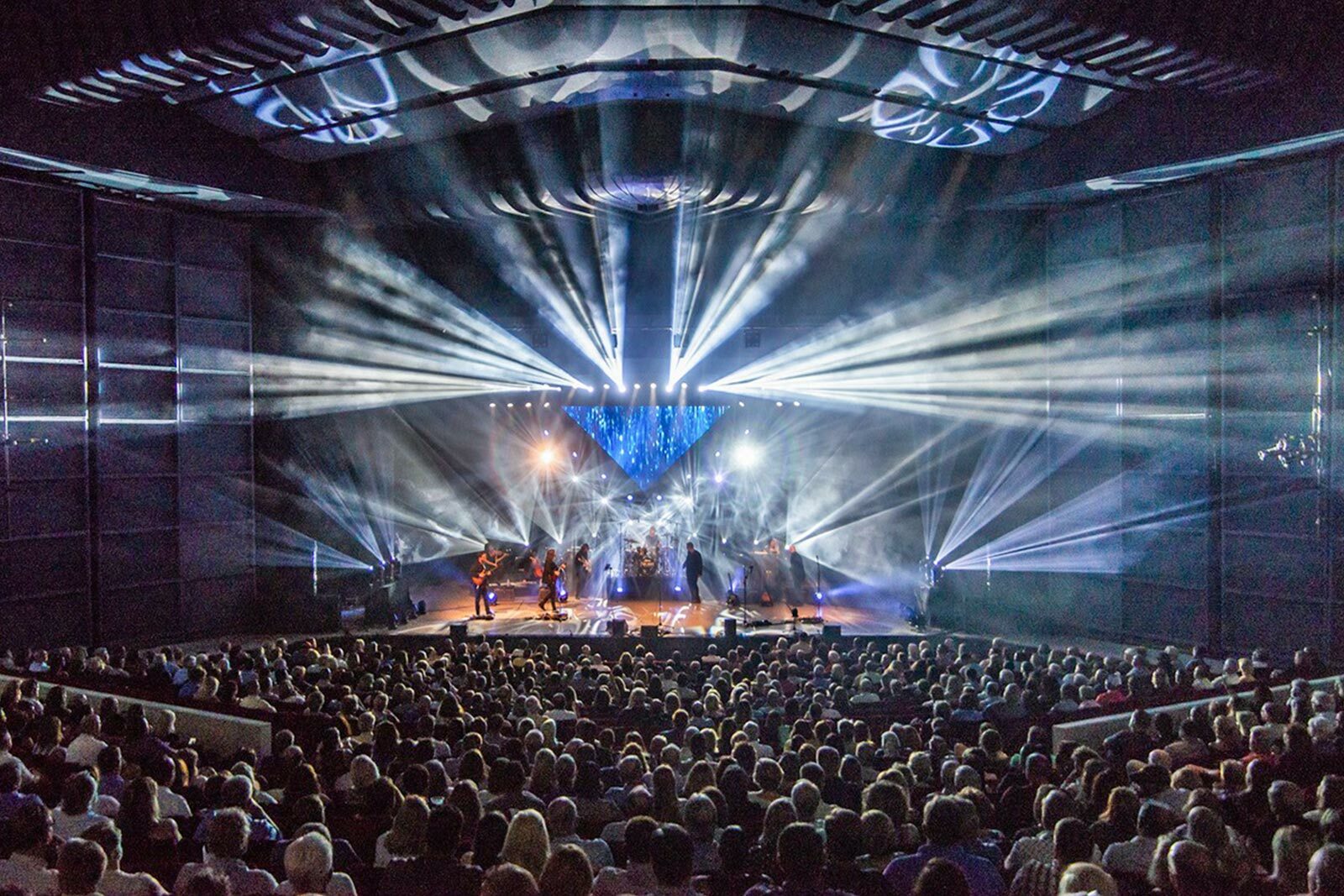Jason Rogoff is a busy man.
He’s so busy that the group that he produces and directs, The Black Jacket Symphony, will be performing without him when they take the stage for the Friday evening concert at the 2024 Regions Tradition.
Instead, he’ll be at another Black Jacket Symphony concert – a sold-out one in Knoxville, Tennessee – where that group will be presenting Prince’s iconic album, “Purple Rain,” for fans.
The situation – of steady but sure success coupled with great players and a unique performance concept – has translated into nearly 20 years of concerts and hundreds of shows covering more than 40 albums in their entirety. And it all started in Birmingham, with an inspired idea.
“Music is ubiquitous; it connects us,” Rogoff said commenting on the group’s dedication to doing music and albums as originally recorded, while bringing players in and out based on need and fit with the group. For Black Jacket Symphony, it’s about the music: “It doesn’t matter who plays it.”
We sat down with Rogoff to talk about the history of The Black Jacket Symphony and what he’s learned in his years producing shows and bands.
Tell us how The Black Jacket Symphony was born.
Back in 2009, it was the 40th anniversary of the Beatles’ album, “Abbey Road.” I was driving in the car with my good friend, Jay Willougby – who is a Beatles fanatic – and we heard an ad for a symphony, doing Bach or something like that. Then we heard an ad for the album. We thought, why can’t people do the same thing for rock? Perform it the way it was originally done, like it was intended. Why can’t we do that with an album? And that was the birth of the Black Jacket Symphony.
The nature of Black Jacket Symphony is a bit different than what you might expect from a typical band. You adjust the players for each album you’re presenting based on what’s needed for that performance. How do you as producer/manager of that group, how do you handle juggling those different players and producing a consistently excellent show?
As far personalities, we’re particular about the people we work with and the performers we have. So, it’s not just about whether you can play but if you can hang out … if you want to be on a tour bus together! There can’t be ego involved in what we do. It’s about the sum of the individual parts. Everyone’s got to be great. Because we can’t pull off what we do without each person.
What are some of the great experiences and albums Black Jacket has performed in its 17 years of its existence?
We’ve done 43 different albums now. Our 44th is in production. We traveled the world and been an absolute blast! We’ve played as far away as the United Arab Emirates and all over the U.S. We do 115-120 shows a year and do our best to bring quality music to fans all over.

Do you play golf.
[Laughing] No. I don’t have time to play golf! I have too many shows!
How did you get into the music business, more specifically the music producing and management business?
I love music. Love being around it, listening to it. Early on, I tried playing guitar, and well, that didn’t work out. I figured out another way to be involved, in production and design. I’ve been managing bands since I was 19! I’ve never stopped. Names like Soundgarden. Chris Cornell. Worked with Lenny Kravitz, Counting Crows and others.
What kinds of music do you listen to?
I love listening to classic rock. All kinds of music. I love going to concerts, where there’s energy and it’s exciting, fun … and you forget your cares for a couple hours and just enjoy the experience. It brings back memories for people. That’s one thing we notice with Black Jacket Symphony. People have these pivotal moments in life and music is the soundtrack to it. I think we can take people back in time to these wonderful places.
As a manager, what are some things on the financial side of the business that musicians don’t think about enough?
I don’t think anybody understands or realizes how much goes into a concert and the economic impact of concerts. COVID brought a lot of that to the forefront. When there’s a concert, it’s more than tickets. It’s going to dinner. Hiring a sitter. Getting the outfit. Then, think about the show, and all the people employed, not just the band but the crew, ushers, food and beverage people, cleaning crew. It’s an ensemble. Without everyone, you wouldn’t have a show. And that’s tied to some pretty significant expenditures.
Then, there’s just keeping your expenses as manageable as possible. That’s true in any business, but in the music business, it can get out of hand really quick.
What’s the best piece of financial advice anyone ever gave you and who gave it to you?
For music, it came from a local (Birmingham) guy, Conrad Rayfield. He told me to keep your production expenses as low as you can. That’s where your costs balloon. As a 19-year-old kid going to shows that were arena-level, you look at them and you want the pyro(technics). So, it was pretty sound advice.
But after thinking about it a bit, the other great advice came from the person that gave me my first job, outside of my parents. His name was Alan Jones. He said to try not to manage your business from the expense side. Yes, keep your costs down, but don’t make every decision based on cost. Do what you need to do when you need to do it. [Like The Black Jacket Symphony] If it’s a sound scenario, it will turn out positive.
The Regions Tradition Friday Concert is free with admission on that day and begins after play ends. Look for the stage on Hole 10, also known as the Watering Hole.
